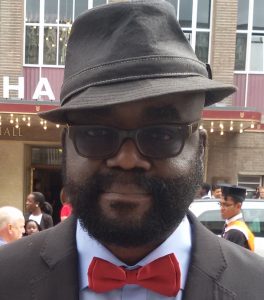
This house is falling, so say many people about the Nigerian project. They point at many indices which signal the psychological dismemberment of the notion of nationhood from every direction of the Nigerian compass. Strife here, discord there, killings everywhere. Such situations propel men and women of goodwill to put heads together in an attempt to fashion a way out of the maze.
The Obafemi Awolowo Foundation provided such a crucial forum at its 2021 annual lecture which held virtually in accordance with the Covid times we live in. Held under the chairmanship of Prof Wole Soyinka, the lecture attracted well over 500 guests. Chief Emeka Anyaoku, former Secretary-General of the Commonwealth was the Special Guest of Honour while Sultan Sa’ad Abubakar was the Royal Father of the Day with Prof Michael Faborode, former vice-chancellor of Obafemi Awolowo University masterfully moderating the event.
The stage was set with some words of wisdom by the Sultan who candidly admitted that Nigeria was at the brink again and called for all hands to be on deck to salvage the nation from war. He warned: “War is not something to wish for… During my career as a military officer, my tour of duty took me to Pakistan and the borders of Afghanistan, where I saw conflicts and deaths and disruptions of lives with people who were otherwise comfortable, finding themselves in IDP camps with all the indignity and sufferings.”
Chief Emeka Anyaoku suggested a way out, drawing from his vast experience in the international circuit. He noted that, “There is abundant evidence to show that a federal system that is based on more economically and socially viable federating units with a less dominant central government, is what will restore Nigeria to the path to greater political stability and a more assured economic growth.
Sinking his teeth into the topic, “Whither Nigeria?”, the Guest Speaker, Odia Ofeimun (poet, polemicist and author) traced the source of the current centrifugal tendencies in the land and cautioned that the perceived expansionist proclivities of the Fulani ethnic group may propel the country into an inexorable spin. Noting that political parties have become toothless aggregation of power mongers who have no ideology in common but just the will to grab power for self aggrandisement, he rued the emergence of what I had called “the Kabiyesi Syndrome” in an article two years ago in which I decried how elected persons become larger than the constitution.
The current state of insecurity all over the country could have been averted, or, at least minimised, he said, if the present administration had followed through with plans already laid down by its predecessor. Education is the key to development, he noted. Keeping 15 million children out of school and without skills is recipe for disaster.
The current state of insecurity all over the country could have been averted, or, at least minimised, he said, if the present administration had followed through with plans already laid down by its predecessor. Education is the key to development, he noted. Keeping 15 million children out of school and without skills is recipe for disaster. He took a backward glance at President Jonathan’s efforts in that regard:
“He (Jonathan) built 165 almajiri schools, and 27 colleges”, recalled Ofeimun. “In a country where fifteen million children of school-going age were lying fallow on the streets, mostly as almajirai, baited as recruits by sundry terrorists masquerading as clerics of the Boko Haram variety, what could be more apt than a response intended to ride terror to a halt through education! So he created a special military unit, the Safe School Initiative, endorsed by the United Nations in 2014, for covert and open protection of schools and colleges in the era of education-hating Boko Haram…”
However, noted Ofeimun, “Once General Buhari removed the Peoples Democratic Party (PDP) and settled down to business, one of the first things he did was to close down all the educational ventures that had taken such great expectations to strategise. As if the Federal Government had simply become an arm of the notorious Boko Haram, haters of schools and kidnappers of school girls, and blockers of the spread of so-called Western education, all the grand plans were simply routed and abandoned.”
The area where government has exerted so much energy even at the expense of alienating large sections of the country, according to Ofeimun, is its attempt to create independent ‘republics’ for Fulani herdsmen all over the country. Tracing the genesis of various crises between cattle herders and indigenous farmers over the years, he wonders why the option of ranching was not explored in the North, especially as that zone is three times the size of the South. He wondered what became of the river basin development authorities built at great costs to provide water for farming and animal husbandry.
Ofeimun’s analysis of the sudden upsurge in foreign bandits is quite riveting:
“It simply happened that the great issues and uproars of our times began to centre on herdsmen mass-migrating as ethnic fractions of the Fulani from Mauritania, Mali, Niger and Chad, and from other parts of Africa. All of them were apparently following invitations to join in the scramble for lands that were not usually identified with the Fulani in Nigeria. Or to put it in the strident terms of the social media, the Fulani in Nigeria were inviting the Fulani all over Africa to come to Nigeria to take over the country with armed propaganda…”
According to him, “From within and outside Nigeria, Fulani youths, who should be truly benefitting from a Marshall Aid to give them education and skills that could remove them from harrowing poverty, were being dragooned in their hundreds of thousands, in trailer loads from the North and dumped into forests and virtual urban jungles in the South… Assuredly, these are the grand and subaltern narratives of our times in the face of governments that are openly asking indigenous farmer-folks in the Middle Belt and across the country to be hospitable to strangers who have been confronting them, ordinary peasants, with Kalashnikovs (AK47 rifles).”
It was in the light of the above, he noted, that people have resorted to all forms of self-help: “Understandably, the local populations across the country, feeling unprotected and betrayed, have accountably lost faith in the national security apparatus. They view all the security forces, all of them under determinate, parochial, ethnic leadership, as being easily and constantly overtaken by virtual hoodlums who perpetrate mayhem. Hoodlums, so called, are pumping general distrust into the public space with forms of impunity daring all communities to set up their own home grown security arrangements.”
But self-help has its problems, and Ofeimun tackles the issue with his own question: “What if every ethnic group, especially those dispossessed by herdsmen, decided also to buy guns and constitute raiding squads to do unto others what has been done to them? It would amount to efforts to dissolve Africa’s most populous state with virtual anarchies and traumas, not too dissimilar to what Africa experienced during the era of the slave-hunting wars that literally despoiled our continent and prepared the way for colonialism.”
We obviously don’t want things to degenerate to that level.
All animals ought to be equal in the Nigerian forest, says Ofeimun. If Fulanis from other country are to be given automatic Nigerian citizenship as canvassed by some politicians of that ethnic stock, then Yorubas and other ethnic groups with brothers and sisters in Benin, Ghana and other countries in West Africa should be extended the same privilege. And where will that leave the current international borders and the protocols governing them?
In spite of everything, Ofeimun believes that Nigeria is not too far gone to be saved. He wants Nigeria reinvented. And he advocates that the elite put in the required intellectual rigour to navigate a more federal way out of the current mess.
Nobelist Wole Soyinka urged state governors not continue wringing their hands in helplessness. They should, he suggested, use the existing constitutional framework to wrest more power from the centre to the federating units and ensure prosperity and welfare of their peoples.
Overall, it was an evening of great intellectual intercourse with Alhaji Sanusi Lamido Sanusi, Dr. Obadiah Mailafia and others engaging Ofeimun on some of the issues.
The aim of the annual lecture, as stated by Ambassador Dr Tokunbo Awolowo Dosunmu, had been achieved. “We are seeking through this event, not to criticise gratuitously, but to actually provoke a national dialogue that will ultimately arrive at a consensus about the way forward for this country”, she said.
And the mystics and sinners and royals and plebeians say — Amen!
- Wole Olaoye is a public relations practitioner and a public affairs commentator and can be reached at wole.olaoye@gmail.com


